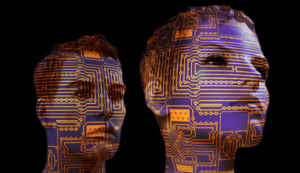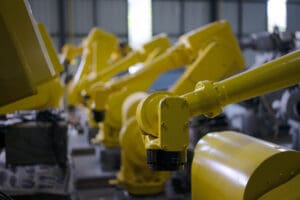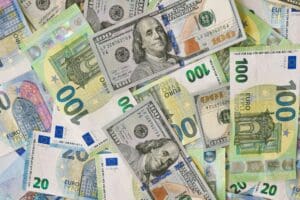There is a commonly held belief that poverty is not the result of any systemic failure, but the personal failure of the impoverished. This view is just plain wrong.
By: David Niose,
To combat today’s discord, promote economic security through UBI.
Driving in traffic last week I found myself behind a pickup truck that was sporting a fluttering “Trump 2020” flag in its bed and numerous bumper stickers on its tailgate. One sticker in particular caught my eye. It read: “I Fight Poverty – I Work!”
It occurred to me that this message, with all that it implies, seems to reflect a generally accepted American belief that contributes to much of today’s divisiveness: the notion that the existence of economic insecurity is actually a good thing – not a problem to be solved, but a value to be welcomed.
Poverty is not the result of any systemic failure, this principle holds, but more likely the personal failure of the impoverished.
Underlying the American work ethic is a quasi-libertarian idea that the possibility of impoverishment is a necessary element in a functioning economy. We work hard not only to achieve some level of wealth, personal fulfillment, and social status, but also, and perhaps more importantly, to avoid the converse – poverty, misery, and squalor. In the free-market mythology that we are taught from a young age, this risk of doom is needed to motivate us to work hard and generate prosperity.
Defenders of insecurity as a positive value will sometimes rely on anecdotal evidence, such as the rare example of a child born into unfortunate conditions – poverty, a crime-infested neighborhood, no role models, etc. – who nevertheless digs deep to rise above such obstacles to find great success, using nothing but ambition, innate talents and a solid work ethic. This reflects the greatness of a free-enterprise system, they will argue, and we should encourage such individual initiative.
There are two problems with such examples, however. One is that such impressive success stories are relatively rare, which itself hardly justifies a system that produces occasional surprise winners alongside a multitude of less fortunate outcomes. The other is that such examples, even if seen infrequently, are hardly unique to a free-market system, for almost any economic system will produce occasional instances of unique talent rising from obscurity to the top. Even the Soviet system – hardly one worth emulating – saw a poor farm boy named Mikhail Gorbachev rise to national leadership through a combination of hard work, ambition and skill.
If we dispose of myth and anecdotes, we find that economic insecurity is not the key to an affluent society, but more often an obstacle.
Sure, values of creativity and enterprise should be encouraged, but such values are best nurtured in an environment of broad economic security. This need not require a nanny state, but it does suggest that stability and prosperity increase when certain economic benefits are assured and various risks are eliminated. Thus we find that the social democracies of Scandinavia actually have more social mobility than the “free market” economy of the United States, while they also top the international rankings for happiness. Meanwhile, not surprisingly, poverty and economic insecurity are linked to numerous undesirable social outcomes such as higher rates of crime and health problems, both physical and mental.
Given the fact that technology is moving us toward what some call a post-scarcity world, we should question the wisdom of viewing insecurity as somehow socially beneficial.
As medical technology has leaped ahead in recent generations, for example, why would we want to structure society so that access to it is limited? Work hard, or you won’t be able to afford that MRI that might save your life! If the current state of American values endorses such economic insecurity, no wonder the electorate is so angry! Despite our wealth as a society, average working people must worry that losing a job might result in their families losing access to health care, or that an unexpected medical problem might result in bankruptcy or the loss of a home.
From this standpoint, the health care question isn’t one of simple number crunching (although the number crunching does suggest that a universal, single-payer system would be most affordable), but one that is more philosophical: In a modern society, should health care be a source of security or insecurity? If it is universally available despite one’s job status or economic status, that availability is a source of security. Otherwise, the risk of losing health care acts as a constant source of insecurity to those whose jobs or economic conditions don’t ensure continuing coverage.
This comes down to a question of values. Should we structure society so that large swaths of the population dwell in economic insecurity?
With many already living paycheck to paycheck, carrying the stress and anxiety of knowing that a layoff or one major health setback will result in certain financial ruin, discord is certain to result. Or should we design the system in a way that eliminates that insecurity?
With our wealth and our advancing technology, it’s likely that we’ll be seeing an upsurge of post-scarcity views in the political realm.
Candidates like Andrew Yang, who advocated for universal basic income and universal health care in the 2020 Democratic presidential race, and whose Twitter feed includes commentary such as “Poverty is unnecessary,” are likely to be more common.
The message is not one of socialism, but a post-scarcity egalitarianism that sees widespread insecurity as unnecessary and undesirable.
An eat-what-you-kill mentality might have been justifiable, or at least understandable, at one time in human history, but such a mentality produces combustible returns in today’s highly complex, technological world. There are no doubt many factors motivating the Trump supporters who, even today, are denying the election results and promising to fight again – they have strong views on guns, religion, race, and immigration – but one must consider that at least some of their anger and defiance is rooted in the economic insecurity that much of America curiously seems to see not as a problem, but a cherished value.
_______________________________________________________
About the Author: David Niose, former president of the American Humanist Association, is an attorney and author.
This article first appeared in Psychology Today 12/20/2020




















